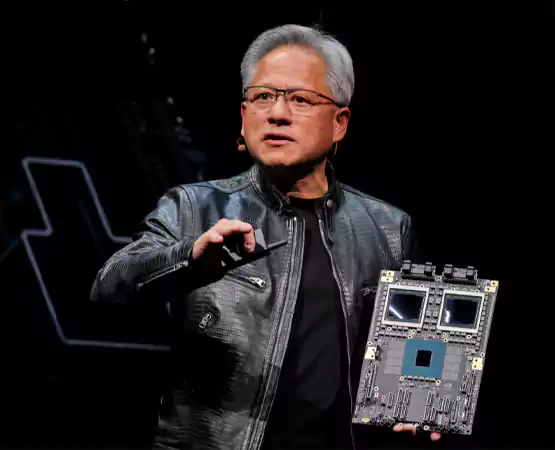
President Donald Trump declared that Nvidia’s most recent artificial-intelligence chips would be allocated only to American consumers in a dramatic change in U.S. technology policy. It effectively bans sales of the greatest performance units to China and other nations.
Speaking in a recorded interview and talks on Air Force One, Trump remarked: “The most advanced, we will not let anyone have them other than the United States.” He said matter-of-factly, “We do not give (the Blackwell) chip to other people.” Nvidia’s Blackwell-series accelerator is the intended target hardware. Although the company already pledged to supply over 260,000 of these chips to South Korean businesses, including Samsung Electronics, Trump emphasized that Chinese companies will not get the top-tier version. Last week’s Approvals for multibillion-dollar exports of sophisticated AI chips, Sales of Nvidia (Blackwell Ultra) to the United Arab Emirates, were granted by the U.S. government.
Still, with considerable reservations, he permitted the prospect of a reduced form of the chips being exported outside U.S. boundaries. The decision means a tightening of export-control rules beyond current structures.
Though this most recent pronouncement seems to draw back from that direction, the U.S.’s July AI blueprint had urged greater AI-chip exports to reliable friends. The choice is clearly motivated by national-security concerns. Critics in circles in Washington caution that access to top-level artificial intelligence processors could speed up foreign enemies’ military.

Partly due to the Chinese government’s own stance on Nvidia’s activities, CEO Jensen Huang has said the company has not sought U.S. export licences into China. Experts claim this limitation might change the dynamics of worldwide AI hardware. Denying complete capacity chips to China, and possibly other countries, the United States hopes to preserve a technological advantage.
Still, it asks questions regarding how geopolitical partnerships and global supply chains will change. Export permits, regional partners, and lower-capability hardware may become major fighting grounds in the tech-cold war going ahead. The Blackwell chips are today front and centre of a bigger fight for who gets to guide the future as the technological race heats up.
